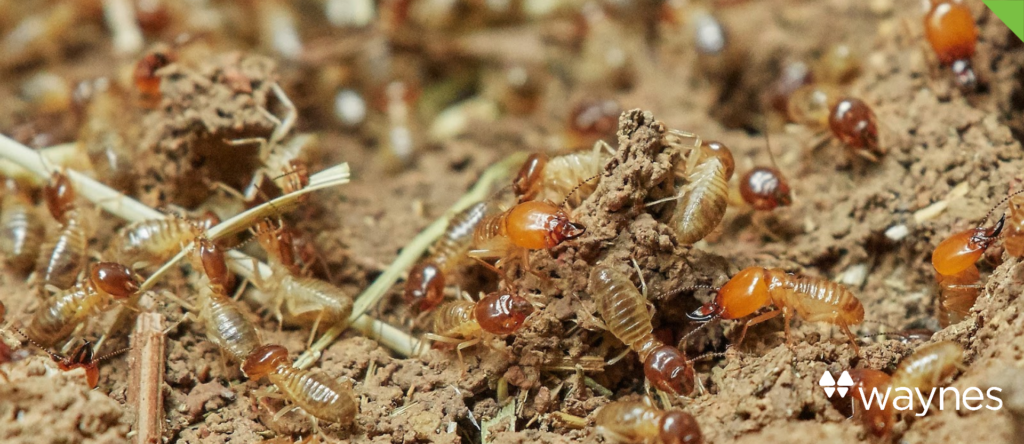It’s the most wonderful time of the year with homes merry and bright with Christmas lights and decorations! If you’re like me, your Christmas decorations were put up a few days after Thanksgiving and Black Friday, and more than likely neither of us checked our tree for BUGS!
While it is rare to have an infested tree, you should be aware of common Christmas tree bugs including adelgids, aphids, bark beetles, mites, praying mantises, spiders, moths, and webworms. The good news is these pests are more annoying than harmful to you and your home. If you should find yourself with a bigger pest problem, Waynes is just a call away to make it a critter-free Christmas.
Whether you set up an artificial or real Christmas tree, follow these quick steps to keep it critter-free this Christmas.
Real Christmas Trees
- Complete a thorough inspection of the trunk, branches, and needles for signs of bugs and critters.
- Ask to have the Christmas tree placed on a tree shaker if one is available; this process removes most pests and loose pine needles. If unavailable, blow off the tree at home with a leaf blower or leave the tree in your garage for a few days and shake well outside before bringing it indoors.
- Take an extra step by spraying your tree with organic neem oil to kill any remaining bugs.
- Once decorated vacuum around the tree picking up any fallen pine needles and pests.
Artificial Christmas Trees
- Give your tree a thorough cleaning before decorating using a light vacuuming to remove dust, pests and possibly eggs.
- To store your tree, remove decorations, such as decorative candy canes, popcorn garlands or gingerbread cookies, which could attract unwanted pests. Proper storage of your artificial tree helps prevent pests so be sure the tree is placed in an airtight container and stored in a dry area of your home.
Have a Merry Christmas!
NOTE: For both trees avoid using harsh pesticides and flammable aerosol pesticides. Keep in mind that the pests on your tree prefer the forest environment from which it came and the warmth of your home has likely triggered their instinct to awaken for spring. These pests will eventually dry out and die due to habitat change or lack of food and water. However, regular pest control treatments are recommended to prevent long-term problems. For more information, give us a call to customize a plan for your home today at 1-866-WAYNES1.









